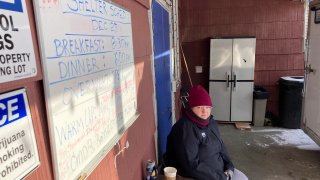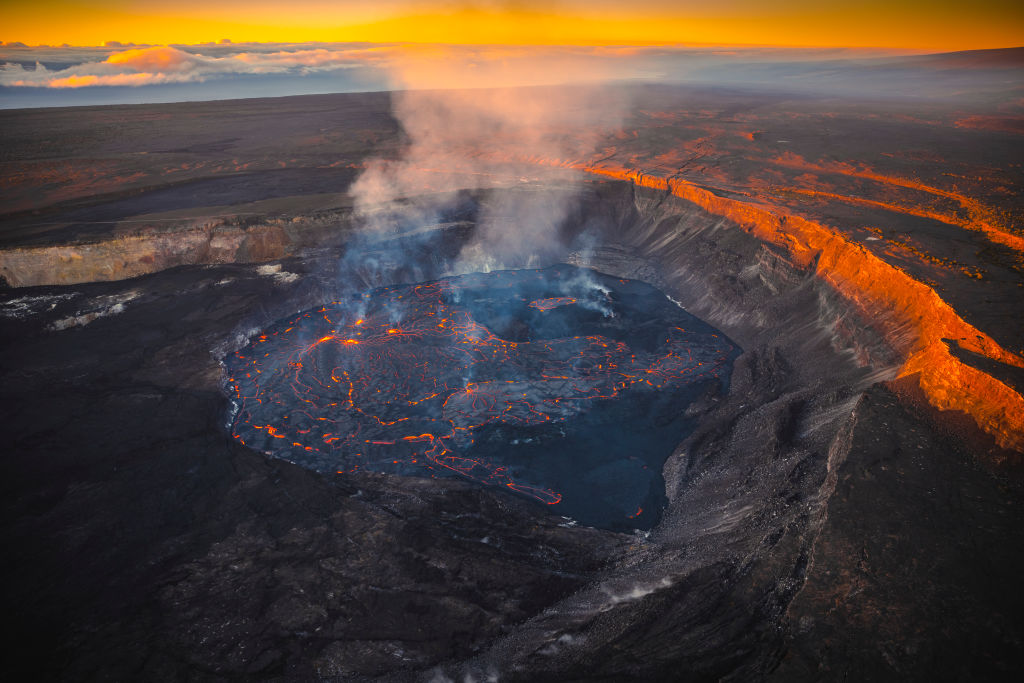
The Pacific Northwest and Sierra Nevada grappled Tuesday with another day of snow, ice and unseasonable cold that has disrupted traffic, caused closures and forced people to find refuge in emergency warming shelters.
Across western Washington and Oregon, officials and private groups opened emergency spaces for people as forecasters said the extreme cold from an arctic blast that blew in Sunday could last until the weekend.
Farther south, part of the main highway from San Francisco to Reno remained closed Tuesday for a third day due to record-setting snow in the Lake Tahoe area after a winter storm blasted across northern California and Nevada.
Snow-choked Interstate 80 shut down Sunday from the Nevada state line to Placer County, California, although Caltrans said U.S. 50 reopened late Monday for vehicles with chains or four-wheel drive.
And with temperatures in normally mild Seattle dropping well below freezing, Kaety West walked a short distance in the snow from the tent where she usually stays to find refuge at a small warming center at an American Legion hall.
“I’m not even willing to stay in it right now. It’s just so difficult,” she said of her tent on Monday.
Snow showers began in the Northwest on Sunday from the Gulf of Alaska, dumping up to 6 inches (15 centimeters) across the Seattle area. Another storm dropped more snow in western Washington and Oregon late Monday and Tuesday.
U.S. & World
The region continued to break daily cold records. The National Weather Service said the low was 17 degrees F (-8.3 C) in Seattle on Monday, breaking a record set in 1968. Bellingham, Washington, plunged to 7 F (-13.9 C) on Monday, tying a record set in 1968.
In Seattle, the city said garbage pickup was canceled for Tuesday, as side streets remained treacherous. And another round of snow was predicted for the Seattle and Portland, Oregon, areas on Thursday.
Get a weekly recap of the latest San Francisco Bay Area housing news. >Sign up for NBC Bay Area’s Housing Deconstructed newsletter.
State officials in Oregon have declared an emergency. In Multnomah County — home to Portland — about a half dozen weather shelters were open.
On Tuesday, county officials said a resident died from exposure to cold temperatures on Saturday, KGW-TV reported. The person who died was not homeless but was found unresponsive outdoors, according to a news release from Multnomah County. No further information was released.
“This is a somber reminder that cold weather is dangerous for anyone outside who does not have the right gear to stay dry and warm,” county health officer Dr. Jennifer Vines said.
Seattle city leaders opened at least six severe weather shelters and the mayor declared an emergency. On Tuesday, King County Executive Dow Constantine also issued an emergency proclamation because of severe winter storm conditions.
Warming shelters in Oregon's Multnomah County were around 75% full on Monday night, with 339 people.
“We had about 100 beds free, but also expect more people to seek shelter with colder temps and snow,” Kate Yeiser, a spokesperson for the county, said Tuesday.
Utilities reported about 5,000 customers without power Tuesday morning, mostly in southwestern Oregon.
Two snowmobilers died in an avalanche in the mountains north of Yellowstone National Park, where about 3 feet (1 meter) of snow had fallen over the past week, the Gallatin National Forest Avalanche Center said. The avalanche Monday brought down snow about 5 feet (1.5 meters) deep and approximately 300 feet (91 meters) wide, burying two of the four riders.
At Donner Pass in the Sierra, officials with the University of California, Berkeley’s Central Sierra Snow Laboratory on Monday said recent snowfall has smashed the snowiest December record of 179 inches (4.6 meters), set in 1970. The record is now 193.7 inches (4.9 meters) as more snow is expected.
The snowpack in the Sierra was at dangerously low levels after recent weeks of dry weather but the stateDepartment of Water Resources reported on Monday that the snowpack was between 145% and 161% of normal across the range with more snow expected, which will help in a region experiencing a protracted drought.
With temperatures in western Washington and Oregon not forecast to rise above freezing for days, officials were planning on keeping emergency shelters for longer than initially expected.
Seattle leaders said city shelters will remain open through the new year. At the shelter where West went to get warm, American Legion Hall Post 160, there was room for about a dozen people.
Keith Hughes of the American Legion said the capacity is limited by lack of volunteer staff.
“Volunteers, this is a problem for myself as well as everyone else in town, it’s really hard to get with COVID going on,” he said, adding there were plans to keep the space open for about 10 days. “The longer it goes on the harder it’s going to be on people that don’t have a place to get out of this.”
___
Associated Press writers Ken Ritter in Las Vegas and Sara Cline in Portland, Oregon contributed.



